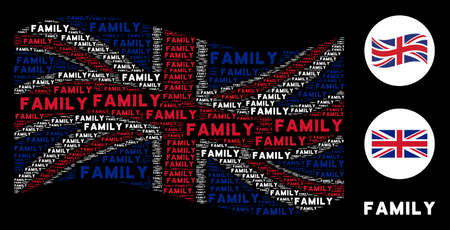Understanding Clutter: The British Perspective
Clutter in British homes is more than just a matter of untidiness; it is deeply influenced by the nation’s culture, history, and architectural heritage. Unlike the spacious layouts often found in American or Australian houses, UK properties are typically smaller and older, with Victorian terraces, Georgian townhouses, and post-war semis making up much of the housing stock. This historical backdrop means that storage space is often at a premium, prompting residents to hold onto items out of necessity or sentimentality.
British culture also places a strong emphasis on tradition and continuity, which manifests in the way families pass down heirlooms and memorabilia through generations. These treasured objects can accumulate over time, resulting in homes filled with items that have both practical and emotional significance. Furthermore, the British penchant for charity shops and car boot sales encourages the collection of “useful” bits and bobs that might one day come in handy.
This context sets the British approach to decluttering apart from other countries. Decluttering in the UK is not simply about creating minimalist spaces; it involves striking a delicate balance between honouring family history, making the most of limited space, and fostering a sense of comfort and homeliness unique to British living. Understanding this nuanced relationship with possessions is essential before applying any Feng Shui principles specifically tailored for UK homes.
Feng Shui Basics Made Practical for UK Households
Feng Shui, the ancient Chinese art of arranging living spaces to enhance energy flow and wellbeing, can feel distant from the realities of British homes. However, its core principles—balance, decluttering, and mindful placement—translate well across different architectural styles found in the UK. Whether you live in a Victorian terrace with narrow corridors, a 1930s semi-detached with bay windows, or a compact modern flat, Feng Shui can be realistically adapted to suit your space and lifestyle.
Core Feng Shui Principles Explained
At its heart, Feng Shui is about optimising “chi” (energy) by removing obstacles and creating harmony between people and their environment. The basics include:
- Decluttering: Removing unnecessary items to allow energy to circulate freely.
- Balancing Elements: Integrating wood, fire, earth, metal, and water through colours, textures, and materials.
- Positioning Furniture: Placing key pieces like beds or sofas to support relaxation and social connection.
Adapting Feng Shui for Different British Home Types
| Home Type | Common Challenges | Feng Shui Solutions |
|---|---|---|
| Victorian Terrace | Narrow hallways, small rooms, cluttered entrances | Use mirrors to expand space visually; keep entryways clear; use light colours to open up rooms |
| 1930s Semi-Detached | Bay windows, alcoves, mixed-use spaces | Balance natural light with soft furnishings; place plants near windows for fresh energy; define zones with rugs or screens |
| Modern Flat | Limited storage, open-plan layouts | Invest in smart storage solutions; use shelving to define areas; avoid blocking windows and doors with furniture |
Making Small Changes for Big Impact
You don’t need dramatic renovations to benefit from Feng Shui in your UK home. Simple steps such as clearing surfaces, letting in natural light, and choosing harmonious colour schemes can transform how your space feels. Start with one room at a time—perhaps the hallway or living room—and focus on clearing clutter as a first step toward greater comfort and positive energy flow tailored to your British lifestyle.

3. Room-by-Room Clutter Clearing Strategies
Approaching clutter clearing the British way means recognising the unique character of UK homes and tailoring Feng Shui principles to fit their quirks. Let’s break down practical strategies for key spaces commonly found across the country.
The Lounge: Creating Calm in the Heart of the Home
British lounges, often the centrepiece for relaxation and socialising, can become clutter magnets. To foster positive energy flow (chi), start by removing unnecessary ornaments and excess furniture. Opt for a balanced arrangement—sofas should face each other rather than walls or televisions, promoting connection. Keep mantelpieces tidy and display only meaningful items. Use soft textiles in harmonious colours to reinforce comfort and warmth, classic features in UK interiors.
The Kitchen: Function Meets Flow
Kitchens in Britain, sometimes compact, benefit hugely from efficient decluttering. Clear worktops of unused appliances and store everyday items within easy reach. The British tradition of displaying crockery can be embraced—just avoid overcrowding shelves. Bring in Feng Shui by placing fresh herbs on windowsills to symbolise growth and vitality. Remember to regularly clear out expired foods from cupboards and the beloved “biscuit tin.”
The Hallway: First Impressions Count
Often narrow or modest in size, UK hallways are crucial for welcoming energy into your home. Remove shoes, coats, and bags from sight with baskets or an under-stairs storage solution. Mirrors can expand space visually but ensure they don’t directly face the front door, as this can bounce good energy straight back out according to Feng Shui principles.
The Garden: Embracing Nature’s Balance
Gardens—be they sprawling lawns or petite patios—are cherished extensions of British homes. Declutter by pruning overgrown plants and removing broken pots or garden ornaments. Introduce curved paths or flowerbeds to guide energy gently around the space, echoing natural movement. Water features, such as bird baths or small ponds, invite tranquillity and abundance when placed thoughtfully.
The All-Important Under-Stairs Cupboard: Hidden Potential
This classic feature in many British houses is notorious for accumulating forgotten clutter. Start by emptying everything out and only returning what’s genuinely useful—think vacuum cleaners or seasonal gear. Install shelves or labelled boxes to keep it organised long-term. Good lighting is essential; a well-lit cupboard feels less like a dumping ground and more like a purposeful storage area.
Bringing It All Together
Tackling each room methodically ensures that every corner of your UK home supports wellbeing and harmony. By blending traditional British sensibilities with Feng Shui wisdom, you create spaces that are not just tidy but also energetically uplifting.
4. Weather, Light, and Seasonality: The UK Environment Factor
The unique environmental conditions of the UK—marked by unpredictable weather, limited sunlight, and pronounced seasonal changes—play a significant role in the way clutter accumulates within British homes. Understanding these factors is essential for applying Feng Shui principles effectively and optimising living spaces for both comfort and energy flow.
How the UK Climate Influences Clutter Patterns
Britain’s frequent rain and dampness often lead to an abundance of coats, boots, umbrellas, and other outdoor gear cluttering entryways and hallways. Limited natural light, especially during long winters, can make rooms feel smaller and more crowded than they actually are. Additionally, the distinct shift between seasons prompts many households to store bulky winter clothing or summer sports equipment for much of the year, creating extra storage challenges.
Seasonal Clutter Challenges Table
| Season | Common Clutter Issues | Feng Shui Solutions |
|---|---|---|
| Winter | Piles of coats, muddy boots, umbrellas in hallways; heavy blankets and warm bedding stored everywhere | Create designated storage zones near entrances; use closed cupboards for shoes and outerwear; rotate bedding and store off-season items in labelled boxes |
| Spring/Summer | Shoes multiply at entrances; sports gear (bikes, rackets) left out; lighter clothing clutters wardrobes | Install hooks or cubbies for easy access; allocate garage/shed space for equipment; declutter wardrobes with seasonal swaps |
| Autumn | Back-to-school chaos: bags, uniforms, paperwork; early darkness means lights and cords add visual mess | Assign baskets for daily items; use cable organisers; introduce brighter accent lighting to energise spaces |
Optimising Space and Flow in the British Context
The key to effective clutter clearing lies in anticipating these cyclical patterns. Built-in storage solutions—such as under-stair cupboards or fitted wardrobes—can help contain seasonal items neatly. Mirrors and strategically placed lighting counteract grey days by enhancing brightness and energy circulation. When possible, position seating areas near windows to maximise natural light exposure. Regularly review possessions at the start of each season: donate unused items and reorganise storage to maintain clarity and flow throughout your home.
5. Eco-Friendly Decluttering: British Solutions
When adopting the British way to clutter clearing, sustainability should be at the forefront. Instead of simply binning unwanted items, there are numerous environmentally friendly options that align with UK sensibilities and community spirit.
Donate to Local Charity Shops
Britain is renowned for its network of charity shops, from Oxfam to British Heart Foundation stores. Donating gently used clothing, books, or household goods not only supports worthy causes but also keeps usable items in circulation, reducing landfill waste.
Embrace Upcycling Traditions
The UK has a rich heritage of upcycling and repurposing. Turn old furniture into new pieces with a lick of paint or creative DIY projects. Upcycling not only breathes new life into items but also adds unique British character to your home while honouring sustainable values.
Utilise Council Collections
Many local councils across the UK offer collection services for bulky waste or recyclable items. Check your council’s website for special collection days or recycling centres nearby. Properly sorting recyclables ensures materials like glass, paper, and electronics are handled responsibly.
Join Community Swapping Schemes
Community swapping events—such as jumble sales, Freecycle groups, or neighbourhood swap meets—are popular British solutions for passing on unwanted goods. These initiatives foster connection while ensuring items find new homes without cost or waste.
Integrating Sustainability with Feng Shui Principles
Sustainable decluttering not only clears space physically but also energetically, supporting positive chi flow in line with Feng Shui philosophy. By choosing eco-friendly British solutions, you create a harmonious environment that reflects both mindful living and respect for the planet.
6. Maintaining a Clutter-Free British Home
Achieving a clutter-free space is only half the battle; maintaining it requires consistent habits and routines. The British approach values subtlety, orderliness, and respect for shared living spaces—qualities that align well with Feng Shui principles. To sustain harmony, consider establishing daily rituals such as the “ten-minute tidy,” a quick sweep through rooms to put things back in their rightful places. Weekly decluttering sessions can become a tradition, much like the classic Saturday morning clean-up found in many UK households.
Ongoing Habits for Lasting Tidiness
Embrace the British custom of “a place for everything and everything in its place.” Use labelled baskets, discreet storage ottomans, and built-in wardrobes to keep everyday items out of sight. Encourage all household members to return coats, shoes, and bags to designated spots as soon as they come home—a nod to the time-honoured British hallway etiquette.
British-Style Routines
Adopt routines that reflect the local rhythm of life. For example, take advantage of the traditional Sunday roast gathering by using it as an opportunity for a light communal tidy-up before guests arrive. In flats or terraced houses where space is at a premium, employ vertical storage solutions and regularly reassess what you truly need versus what’s simply taking up precious room.
Etiquette Tips for Shared Harmony
Feng Shui values harmony and flow, which pairs perfectly with British politeness and respect for others’ comfort. Agree on household rules for shared spaces: no shoes on carpets, dishes washed promptly after use, and personal belongings kept out of common areas. If you live in a flat share or multi-generational home, communicate openly about communal tidying schedules—perhaps over a cup of tea—to ensure everyone feels included and valued.
By weaving these ongoing habits, routines, and etiquette tips into daily life, you will not only maintain a clutter-free home but also create an environment that embodies both British sensibility and Feng Shui harmony—making your space welcoming, tranquil, and truly yours.

